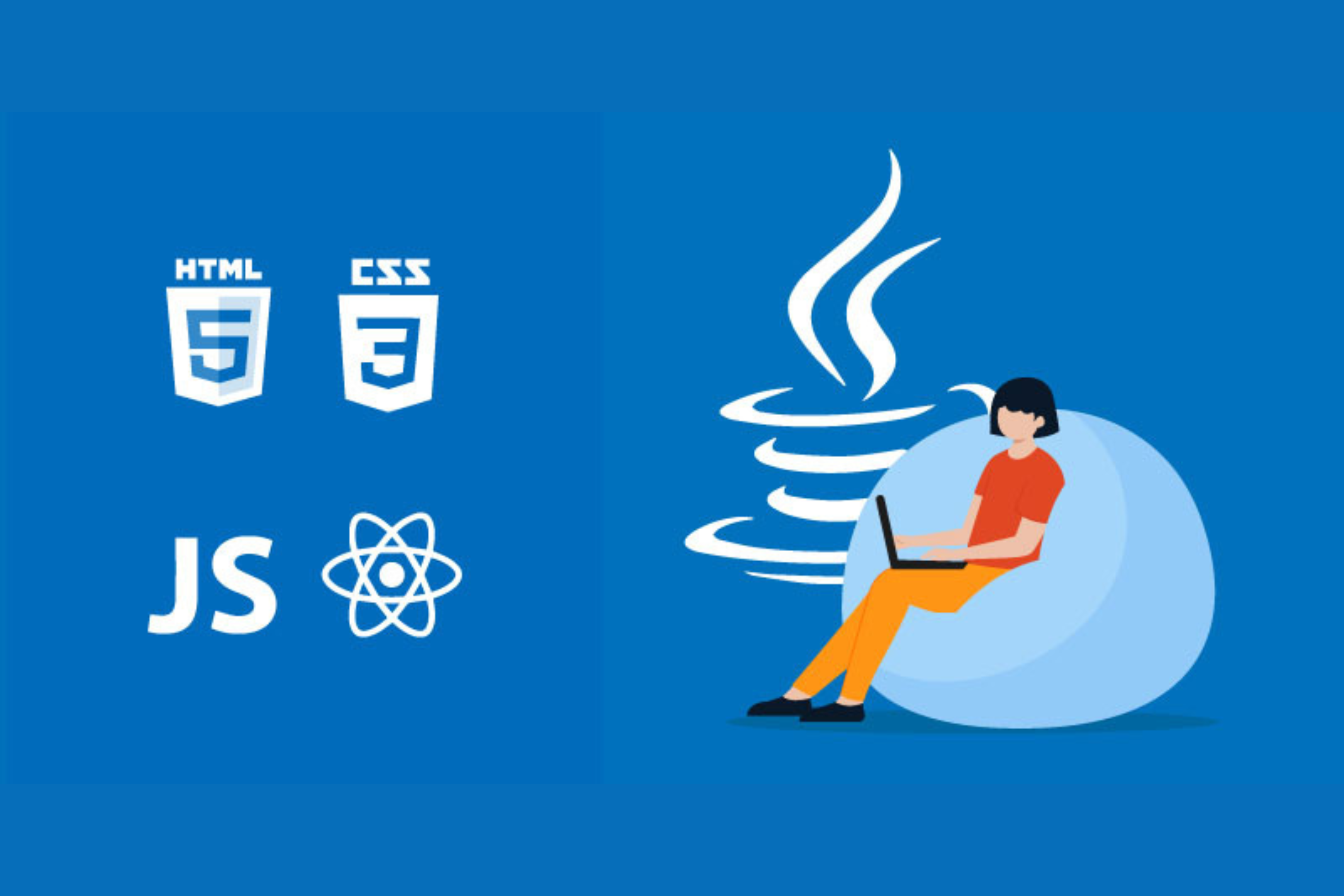 03-4 Months
New
03-4 Months
New
Full Stack Java Development
Description
Become a proficient Full Stack Java Developer with our all-encompassing course. Whether you're starting from scratch or enhancing your skills, this course takes you from fundamental programming concepts to advanced web development techniques.
What Will You Learn?
- Grasp core Java concepts such as variables, data types, and control flow.
- Master object-oriented programming principles and design patterns.
- Develop front-end skills with HTML, CSS, and JavaScript.
- Dive into back-end development with Java, Spring Framework, and RESTful services.
- Implement advanced topics like exception handling, file I/O, and database connectivity.
- Integrate front-end and back-end to build full stack applications.
- Gain hands-on experience by building real-world applications.
Certification
Upon successful completion, you'll receive a certificate of completion, validating your Full Stack Java Development skills. This certification is recognized in the industry and can enhance your career prospects.
The Course Curriculum
This document outlines the key topics covered in Java Full Stack Development, ranging from basic concepts to advanced techniques. Each main topic is further broken down into subtopics for a comprehensive understanding of the language and tools.
- Introduction to Full Stack Development
- Overview of Full Stack Development
- Roles and Responsibilities of a Full Stack Developer
- Development Tools and Environment Setup
- Java Programming Basics
- Java Syntax and Basics
- Data Types, Variables, and Operators
- Control Flow (if, switch, loops)
- Functions and Methods
- OOP Principles: Classes, Objects, Inheritance, Polymorphism, Abstraction, and Encapsulation
- Practical Exercises
- Basic Java Programs
- Mini Projects: Calculator, Temperature Converter
- Advanced Java Concepts
- Exception Handling
- Collections Framework (Lists, Sets, Maps)
- Streams and Lambda Expressions
- File I/O
- Development Tools
- Version Control with Git and GitHub
- Build Tools: Maven or Gradle
- IDE Setup: IntelliJ IDEA or Eclipse
- Practical Exercises
- Advanced Java Exercises
- Mini Projects: To-Do List Application
- Introduction to Spring Framework
- Overview of Spring Framework
- Dependency Injection (DI) and Inversion of Control (IoC)
- Spring Boot Basics
- Setting Up Spring Boot Application
- RESTful APIs with Spring Boot
- Database Integration with Spring Data JPA
- Security Basics with Spring Security
- Practical Exercises
- Building RESTful Services
- CRUD Operations with Spring Boot
- Mini Project: Simple API for a Library System
- Introduction to Databases
- Overview of Database Management Systems (DBMS)
- Relational vs. Non-relational Databases
- Relational Databases (RDBMS)
- SQL Basics: SELECT, INSERT, UPDATE, DELETE
- Database Design: Tables, Relationships, Normalization
- Introduction to MySQL or PostgreSQL
- Advanced SQL Queries: Joins, Subqueries, Transactions
- Integrating Databases with Spring Boot
- Configuring Data Source
- Using Spring Data JPA
- Repository Pattern
- Data Migration and Management
- Non-Relational Databases
- Introduction to NoSQL Databases
- Overview of MongoDB
- Basic CRUD Operations with MongoDB
- Integrating MongoDB with Spring Boot
- Practical Exercises
- Designing and Implementing a Database Schema
- Performing CRUD Operations with SQL and NoSQL
- Mini Project: Blog Application with MySQL/MongoDB Integration
- HTML and CSS Basics
- HTML Elements, Forms, and Attributes
- CSS Selectors, Properties, and Layouts (Flexbox, Grid)
- Responsive Design Principles
- JavaScript Basics
- JavaScript Syntax and Operators
- DOM Manipulation
- Event Handling
- Introduction to ES6 Features
- Practical Exercises
- Creating Static Web Pages
- Mini Projects: Personal Portfolio Website
- Introduction to React (or Angular/Vue.js)
- React Basics: Components, Props, State
- Component Lifecycle
- Routing with React Router
- State Management with Context API or Redux
- Integration with Backend
- Consuming REST APIs with Axios or Fetch
- Form Handling and Validation
- Practical Exercises
- Building a Dynamic Web Application
- Mini Project: Task Manager Application with React
- Project Planning
- Project Requirements Gathering
- Architecture Design (Frontend, Backend, Database)
- Development
- Implementation of Full Stack Application
- Applying Best Practices (Code Quality, Testing)
- Testing and Debugging
- Unit Testing (JUnit for Java, Jest for JavaScript)
- End-to-End Testing (Selenium or Cypress)
- Deployment and Presentation
- Final Deployment of Capstone Project
- Project Presentation and Review
- Feedback and Wrap-Up
- Course Review
- Future Learning Paths and Career Advice
Instructor
Instructor Not Updated
Reviews
No Reviews
